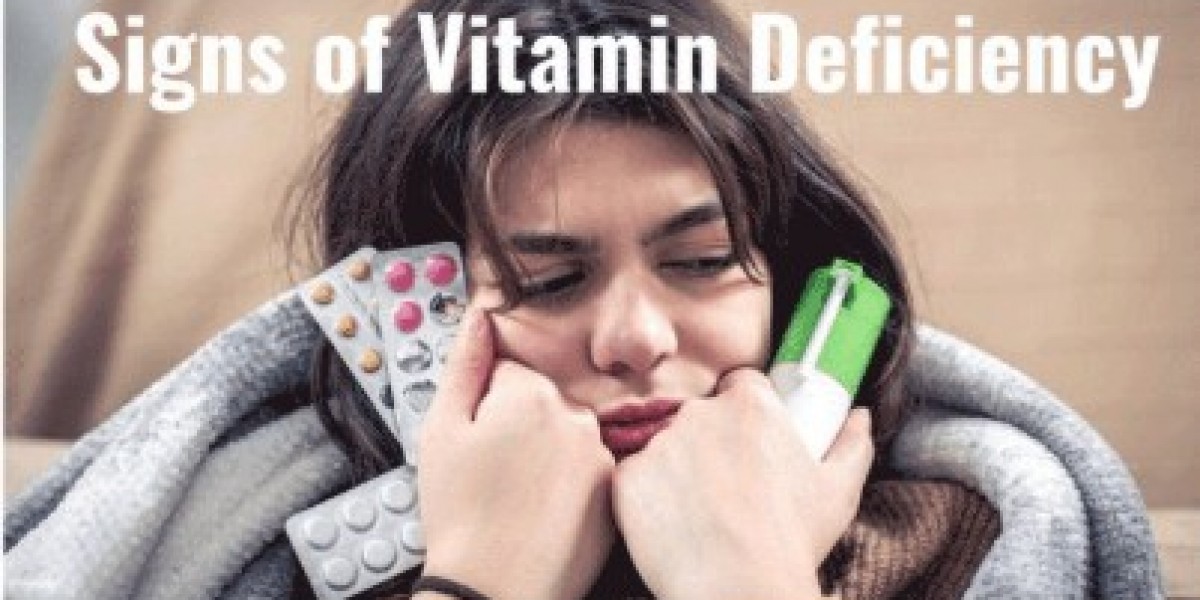Your body is an intelligent system — it often signals when something is missing long before serious health issues arise. One of the most common but overlooked causes of fatigue, pain, and low immunity is vitamin deficiency. Unfortunately, many people ignore these early signs, attributing them to stress or aging. Recognizing and addressing these deficiencies in time can prevent long-term damage and help you maintain energy, focus, and strength naturally.
Let’s look at the most common vitamin deficiencies, their early signs, and how to support your body for better wellness.
1. Fatigue and Weakness: Signs of Vitamin B12 Deficiency
Feeling tired even after a full night’s sleep? Chronic fatigue and muscle weakness are classic signs of Vitamin B12 deficiency. This vitamin is vital for energy production and red blood cell formation. When levels are low, your body struggles to carry oxygen efficiently, leaving you drained and sluggish.
Early signs include:
Low stamina or shortness of breath during physical activity
Dizziness or light-headedness
Tingling in hands and feet
If left untreated, this deficiency can lead to nerve damage and even cognitive decline. A balanced diet rich in eggs, dairy, and fortified cereals, or a B12 supplement, can help restore balance naturally.
2. Bone and Joint Pain: The Vitamin D Deficiency Connection
If you’re experiencing unexplained joint stiffness, back pain, or knee discomfort, it might not just be posture — it could be Vitamin D deficiency. This “sunshine vitamin” is essential for calcium absorption and bone health. Lack of Vitamin D weakens the bones, increasing the risk of arthritis, fractures, and chronic pain.
People who spend most of their time indoors or live in areas with limited sunlight are particularly vulnerable. Adding foods like mushrooms, fatty fish, and fortified milk, along with 15 minutes of sunlight daily, can make a big difference.
For those who already suffer from discomfort, combining proper nutrition with targeted support products like a knee pain spray can offer fast and soothing relief while the body replenishes its vitamin levels naturally.
3. Hair Loss and Brittle Nails: Deficiency in Biotin and Iron
Notice your hair thinning or nails becoming fragile? Biotin (Vitamin B7) and Iron deficiencies are often to blame. Biotin supports the health of hair follicles and keratin structure, while Iron carries oxygen to cells — including those responsible for hair growth.
Signs to watch for:
Hair shedding more than usual
Pale skin or dark under-eye circles
Weak nails that chip easily
Natural sources like spinach, lentils, eggs, and almonds can restore these nutrients. Maintaining proper iron levels also supports overall energy and focus.
4. Mood Swings and Depression: Low Vitamin B6 and Folate
Vitamins B6 and B9 (Folate) are crucial for brain function and the production of neurotransmitters such as serotonin and dopamine. A deficiency in these vitamins can cause irritability, mood swings, and even mild depression.
Common signs:
Lack of motivation or brain fog
Poor concentration
Increased anxiety
Adding leafy greens, chickpeas, and whole grains can help, along with stress-management techniques like yoga or mindfulness. If fatigue or body pain accompanies these mood changes, a fast relief tablet can offer temporary comfort while you work on restoring your vitamin balance holistically.
5. Muscle Cramps and Tingling Sensations: Magnesium and Calcium Deficiency
Persistent muscle cramps, especially in the legs or neck, often indicate low magnesium or calcium levels. These minerals are essential for nerve function and muscle contraction. Without them, your body struggles to regulate movement and tension, leading to spasms or stiffness.
For those who experience localized discomfort, using a neck pain relief spray can provide immediate comfort. However, the long-term fix involves improving mineral intake through foods like bananas, yogurt, nuts, and leafy greens.
When paired with stretching and hydration, these habits help reduce recurring cramps and promote better muscle performance.
6. Slow Wound Healing: Vitamin C Deficiency
If your cuts or bruises are taking longer to heal, your body might be low on Vitamin C. This antioxidant supports collagen production — vital for skin repair, immunity, and connective tissue strength.
Early symptoms:
Frequent infections
Swollen gums or bleeding while brushing
Rough, dry skin
Citrus fruits, bell peppers, and guavas are natural sources of Vitamin C that help the body rebuild and recover faster.
7. Cracked Lips and Skin Issues: Deficiency in Vitamin B2 and E
Cracked lips, dry skin, or small sores around the mouth may signal a Vitamin B2 (Riboflavin) deficiency. Likewise, Vitamin E deficiency can make your skin dry and dull since it plays a role in protecting cells from oxidative damage.
Adding nuts, seeds, green vegetables, and healthy fats to your meals can restore skin health from within. Topical hydration and natural oils can further enhance repair.
Bringing It All Together: Nourish, Relieve, and Rebalance
Your body’s signals are subtle yet powerful indicators of internal imbalance. Recognizing and responding to early signs of vitamin deficiency can prevent serious complications later.
A holistic approach works best — combine nutritious foods and supplements with gentle, natural remedies that offer comfort while healing takes place. For instance:
Use knee pain spray for localized joint discomfort.
Apply neck pain relief spray to relieve stiffness caused by vitamin or mineral deficiency.
Take a fast relief tablet when body pain or fatigue strikes, but pair it with proper diet and hydration for lasting wellness.
At RESET, the focus is on restoring balance — naturally and effectively. Vitamins are not just nutrients; they’re the foundation of vitality, energy, and resilience. So, listen to your body, nourish it deeply, and let prevention be your best medicine.








